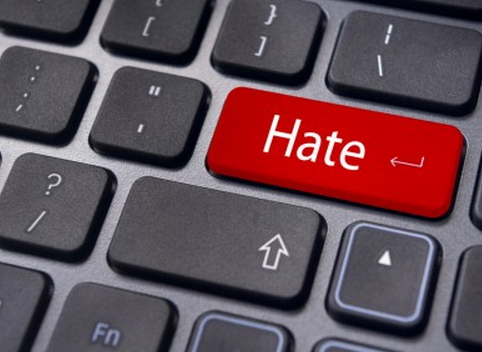Highlight 3/2024 – How does the EU deal with online hate? – A Human Rights Perspective
Ruzanna Abrahamyan, 16 January 2024

Around the world, we are witnessing alarming trends of hate speech on the rise fueling xenophobia, racism, anti-religious hatred and misogyny.
Hate speech can have devastating impacts on its victims and on societies. It has resulted in hate crimes, discrimination, and even violence. In the most serious cases, hate speech can be an indicator of risk and a trigger of atrocity crimes, in particular genocide. We know this from history.
Today social media has become another vehicle for hate speech, with the ability to spread information at a speed never seen before, reaching potentially huge audiences within a few seconds. The manner in which many platforms operate feeds on hateful and discriminatory content, and provides echo chambers for such narratives. Online hate speech has led to real world harm. We have seen this from incidents of identity based violence where the perpetrators were instigated through online hate, to its widespread use to dehumanize and attack entire populations on the basis of identity.
According to a 2020 study conducted for the European Parliament and a 2021 study supporting the European Commission’s initiative to counter hate speech and hate crime, the incidence of these phenomena has steadily increased across the EU in recent years. The question, therefore, is how does the EU fight against online hate speech?
At the EU level, Council Framework Decision 2008/913/JHA criminalises hate speech and hate crime based on a range of grounds. It prohibits ‘publicly inciting to violence or hatred against a group of persons or a member of such a group defined by reference to race, colour, religion, descent or national or ethnic origin’. It also requires that Member States take measures to ensure that racist and xenophobic motivation is considered an aggravating circumstance by their criminal laws, or alternatively, may be taken into consideration by the courts when setting penalties. The bias motivation is thus the defining element of hate speech and hate crime.
At present, the EU has no competence /Article 83 TFEU/ to criminalise hate speech and hate crime due to which EU Member States have criminalised hate speech based on the grounds covered by the 2008 framework decision, and national laws differ with regard to other protected characteristics.
In order to respond to the proliferation of racist and xenophobic hate speech online, the European Commission and four major IT companies (Facebook, Microsoft, Twitter and YouTube) presented a Code of Conduct on countering illegal hate speech online on 31 May 2016. Since then, Instagram, Snapchat, Dailymotion, Jeuxvideo.com, TikTok, LinkedIn and, in spring 2022, Rakuten Viber and Twitch joined the Code. The implementation of the Code of Conduct is evaluated through a regular monitoring exercise set up in collaboration with a network of organisations located in the different EU countries. Using a commonly agreed methodology, these organisations test how the IT companies are implementing the commitments in the Code. But the thing is that online hate is notoriously difficult to measure. This is related to the sheer number of posts shared online, the different ways in which it is expressed and the challenge of defining online hate. Identifying online hate strongly depends on the context of its expression. Moreover, while the existence of online hate may create a chilling effect on those affected, by – for example – discouraging them from joining or taking part in online discussions, removing too much content can also be a problem. FRA’s Fundamental Rights Report of 2023 highlighted that some civil society organisations expressed concerns that the regulation of illegal content may be detrimental to fundamental rights, mostly the freedom of expression, as companies may err on the side of caution and over-remove content to avoid negative sanctions.
In this field, the EU also works with numerous civil society organisations at the EU and national levels to promote civil engagement with regard to online hate. The organisations represent different perspectives. Civil society organisations contribute to safer online spaces through their efforts to detect illegal content and notify platforms of this. For example, civil society organisations carry out work as ‘trusted flaggers’. These are entities with trusted status whose reports to companies about illegal content are treated with higher trust and priority. Civil society organisations also contribute through carrying out research and investigations to highlight platforms’ potential misconduct. All these important tasks require proper funding, as civil society organisations frequently raise issues linked to underfunding.
To conclude, online hate speech is widely recognised as a societal problem, yet defining what exactly amounts to hate speech and how to deal with it is no easy task. Detecting (illegal) online hate is notoriously difficult, analysis shows. There is no single methodology that reliably detects all online hate. Several actors must make efforts within their mandates to detect online hate.
Ruzanna Abrahamyan, Highlight 3/2024 – How does the EU deal with online hate? – A Human Rights Perpective, 16 January 2024, available at www.meig.ch
The views expressed in the MEIG Highlights are personal to the authors and neither reflect the positions of the MEIG Programme nor those of the University of Geneva.
